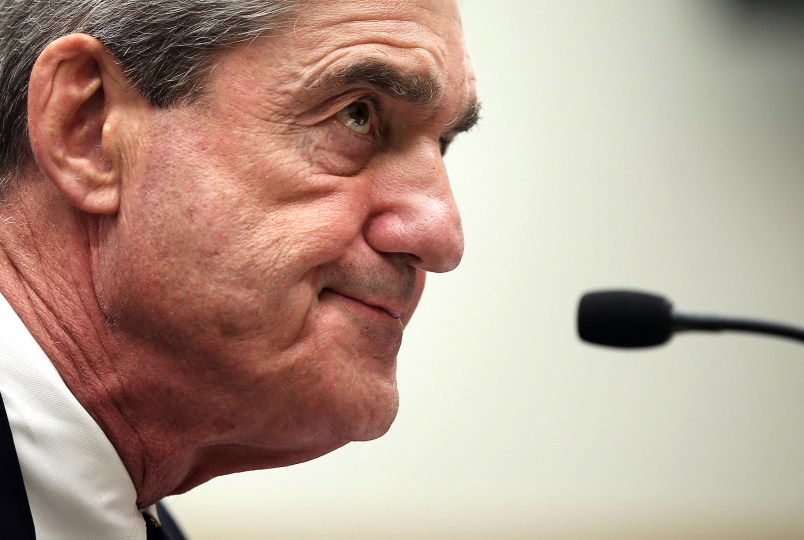After publicly calling for Russia to hack a cache of 30,000 deleted emails belonging to Hillary Clinton, Trump told Michael Flynn to find them, the redacted Mueller report states.
“Trump asked individuals affiliated with his Campaign to find the deleted Clinton emails,” the document reads. The redacted report goes on to cite FBI interviews with Flynn as saying that Trump “made this request repeatedly, and Flynn subsequently contacted multiple people in an effort to obtain the emails.”
Those two people were investment banker and GOP activist Peter Smith – who later committed suicide – and Senate staffer Barbara Ledeen.
The report says that Ledeen, who was on the staff of Sen. Charles Grassley (R-IA), began her efforts to obtain hacked Clinton emails before Flynn asked, in December 2015.
She purportedly emailed Smith with a “25-page proposal” saying that Clinton’s email server – the subject of fervent speculation in the right-wing media at the time – was “in all likelihood, breached long ago.”
Ledeen purportedly adds in the proposal that “even if a single email was recovered and the providence [sic] of that email was a foreign service, it would be catastrophic to the Clinton campaign.”
Smith initially declined to participate in Ledeen’s campaign, but after Trump’s statement, the redacted report reads, the banker “created a company, raised tens of thousands of dollars, and recruited security experts and business associates” to try to access the emails.
Smith created a recipient list for a series of emails and documents he sent out, which included Trump campaign official Sam Clovis, among others. The banker repeatedly claimed to have been in contact with Russian operatives about accessing the stolen emails; the report suggests that investigators were unable to verify that he was being truthful or if he had succeeded in establishing contacts with Russian hackers.
During Smith’s efforts, Ledeen continued on her own campaign to get the emails, claiming at one point in the summer of 2016 “to have obtained a trove of emails (from what she described as the “dark web”) that purported to be the deleted Clinton emails.”
“Ledeen wanted to authenticate the emails and solicited contributions to fund that effort,” the redacted report reads. “Erik Prince provided funding to hire a tech advisor to ascertain the authenticity of the emails.”
The document states that Prince later testified to the special counsel that “the emails were not authentic.”
This article has been updated.







“Senate staffer Barbara Leeden”
You probably mean “Barbara Ledeen”, wife of right-wing nut cake Michael Ledeen? It is misspelled throughout the article.
But Donnie said he didn’t? I’m confused by these alternate facts…
Just goes to show that these people really are True Believers and repeat whatever talk radio and Fox News spew out. There was never any reason to think Hillary’s server was hacked or that she ever wrote any criminal emails. That was just a game of Conspiracy Telephone, where each participant invented their own speculation and then thinks it’s confirmed when someone else repeats it.
The whole thing was based on the myth that Hillary had a private message system to communicate to her minions without anyone knowing about it; which she wouldn’t have done unless she was being illegal. Like if someone was trying to establish a backdoor channel to Russia without the NSA listening in. But this was just her normal email account that she stupidly used for business and personal emails and keeping it on her own server was the safest place of all.
Total exoneration.
Just imagine the outrage had President Clinton invited Foreign Minister Sergei Lavrov and Ambassador Sergey Kislyak into the Oval Office.